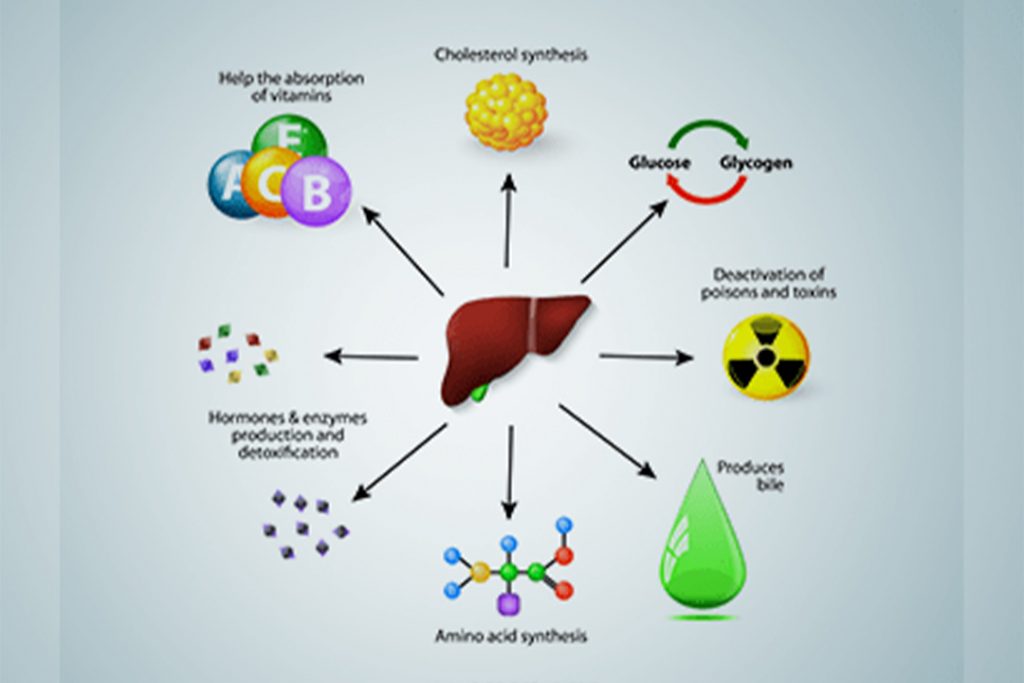
Vitamin E and the Liver: Understanding the Connection
Vitamin E, a fat-soluble antioxidant, plays a crucial role in protecting cells from damage caused by free radicals. While widely recognized for its benefits to skin health, immune function, and cardiovascular health, the relationship between vitamin E and the liver is complex and warrants careful consideration. This article delves into the intricacies of how vitamin E impacts liver health, exploring both its potential benefits and risks.
The Role of Vitamin E
Vitamin E is not a single compound but a group of eight fat-soluble compounds with antioxidant properties. Alpha-tocopherol is the most active form in humans. Its primary function is to neutralize free radicals, unstable molecules that can damage cells and contribute to chronic diseases. This antioxidant activity is particularly important in the liver, which is constantly exposed to toxins and oxidative stress due to its role in detoxification.
Potential Benefits of Vitamin E for Liver Health
Several studies have investigated the potential benefits of vitamin E supplementation for specific liver conditions. One area of focus has been non-alcoholic steatohepatitis (NASH), a severe form of non-alcoholic fatty liver disease (NAFLD). NAFLD is characterized by fat accumulation in the liver, and NASH involves inflammation and liver cell damage. [See also: Understanding Non-Alcoholic Fatty Liver Disease]
Vitamin E and NASH
Research suggests that vitamin E may help improve some aspects of NASH. A meta-analysis published in *The American Journal of Gastroenterology* indicated that vitamin E supplementation could reduce liver inflammation and improve liver enzyme levels in patients with NASH. The antioxidant properties of vitamin E are believed to contribute to these benefits by reducing oxidative stress and inflammation in the liver.
However, it’s important to note that vitamin E is not a universal treatment for NASH. Guidelines from the American Association for the Study of Liver Diseases (AASLD) suggest that vitamin E can be considered for non-diabetic adults with biopsy-proven NASH, but its long-term efficacy and safety require further investigation. Lifestyle modifications, such as diet and exercise, remain the cornerstone of NAFLD and NASH management.
Other Potential Liver Benefits
Beyond NASH, some studies have explored the role of vitamin E in other liver conditions, though the evidence is less conclusive. For instance, there’s limited research on the effects of vitamin E in individuals with alcoholic liver disease or viral hepatitis. More research is needed to determine whether vitamin E supplementation can provide any benefits in these contexts.
Risks and Considerations
While vitamin E may offer potential benefits for certain liver conditions, it’s crucial to be aware of the risks associated with excessive intake. As a fat-soluble vitamin, vitamin E is stored in the body, and high doses can accumulate to toxic levels. The tolerable upper intake level (UL) for vitamin E is 1,000 mg (1,500 IU) per day for adults.
Potential Side Effects
Excessive vitamin E intake can lead to several side effects, including:
- Increased risk of bleeding: Vitamin E can interfere with blood clotting, potentially increasing the risk of bleeding, especially in individuals taking anticoagulant medications like warfarin.
- Gastrointestinal issues: High doses of vitamin E may cause nausea, diarrhea, and abdominal cramps.
- Fatigue and muscle weakness: Some individuals may experience fatigue and muscle weakness with excessive vitamin E supplementation.
- Increased risk of prostate cancer: A large clinical trial known as the SELECT trial found that high doses of vitamin E (400 IU per day) were associated with a slightly increased risk of prostate cancer in men.
Vitamin E and Liver Damage
Ironically, while vitamin E is often touted for its antioxidant properties and potential to protect the liver, some studies suggest that excessive intake could actually contribute to liver damage in certain situations. A study published in *The Journal of Hepatology* found that high doses of vitamin E could exacerbate liver fibrosis in mice with NAFLD. While these findings need to be confirmed in human studies, they highlight the importance of caution when considering vitamin E supplementation.
Who Should Consider Vitamin E Supplementation?
Vitamin E supplementation should not be undertaken lightly. It’s essential to consult with a healthcare professional before starting any new supplement regimen, especially if you have existing liver conditions or are taking other medications. In general, vitamin E supplementation may be considered in the following situations:
- Individuals with biopsy-proven NASH: As mentioned earlier, vitamin E may be considered for non-diabetic adults with NASH, under the guidance of a healthcare provider.
- Individuals with vitamin E deficiency: Vitamin E deficiency is rare but can occur in individuals with certain malabsorption disorders or genetic conditions. In these cases, supplementation may be necessary to correct the deficiency.
However, for most healthy individuals, obtaining vitamin E through a balanced diet is sufficient. Good food sources of vitamin E include vegetable oils, nuts, seeds, and green leafy vegetables. [See also: Dietary Sources of Vitamin E]
Dietary Sources of Vitamin E
Prioritizing food sources is generally the best approach to ensure adequate vitamin E intake. Here are some excellent dietary sources:
- Wheat germ oil: The richest source of vitamin E.
- Sunflower seeds: A convenient and healthy snack.
- Almonds: Another good source of vitamin E and healthy fats.
- Spinach: Provides vitamin E along with other essential nutrients.
- Avocado: Offers vitamin E and monounsaturated fats.
Conclusion
The relationship between vitamin E and the liver is nuanced. While vitamin E may offer potential benefits for certain liver conditions, such as NASH, it’s not a panacea and should not be used indiscriminately. Excessive intake can lead to adverse effects, and some studies suggest it could even exacerbate liver damage in certain situations. Always consult with a healthcare professional before considering vitamin E supplementation, and prioritize obtaining vitamin E through a balanced diet whenever possible. The key to maintaining liver health lies in a holistic approach that includes a healthy diet, regular exercise, and avoidance of excessive alcohol consumption.
